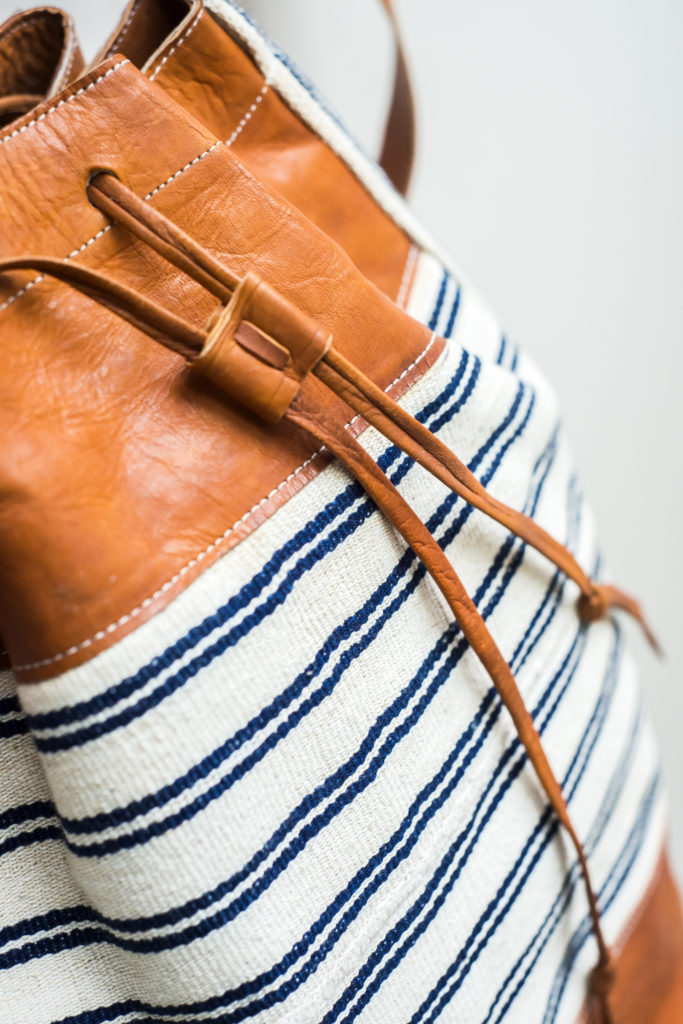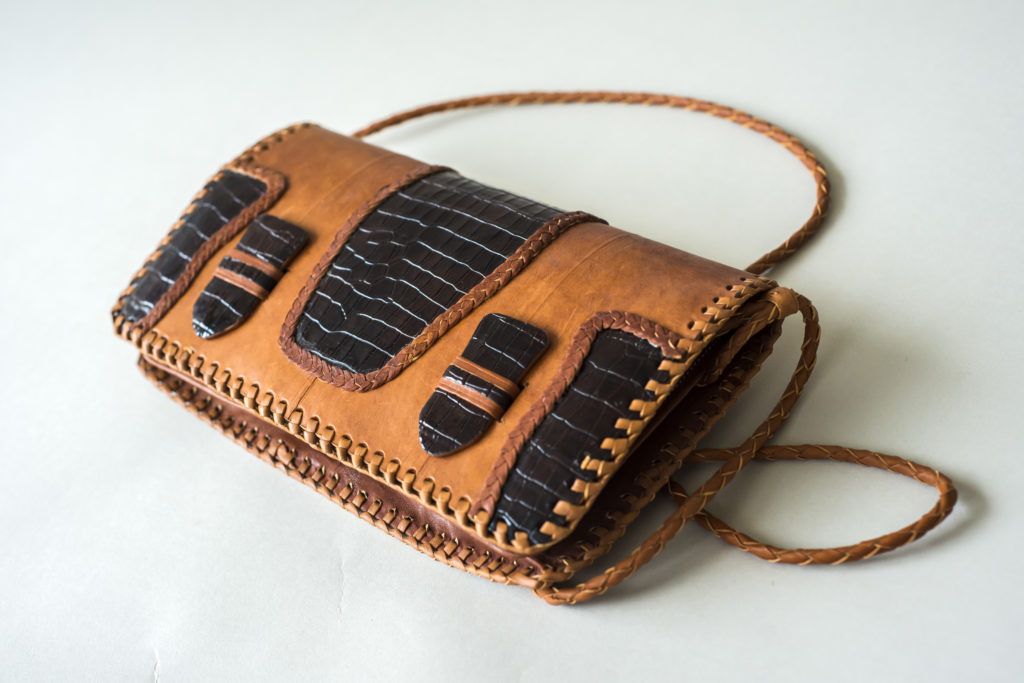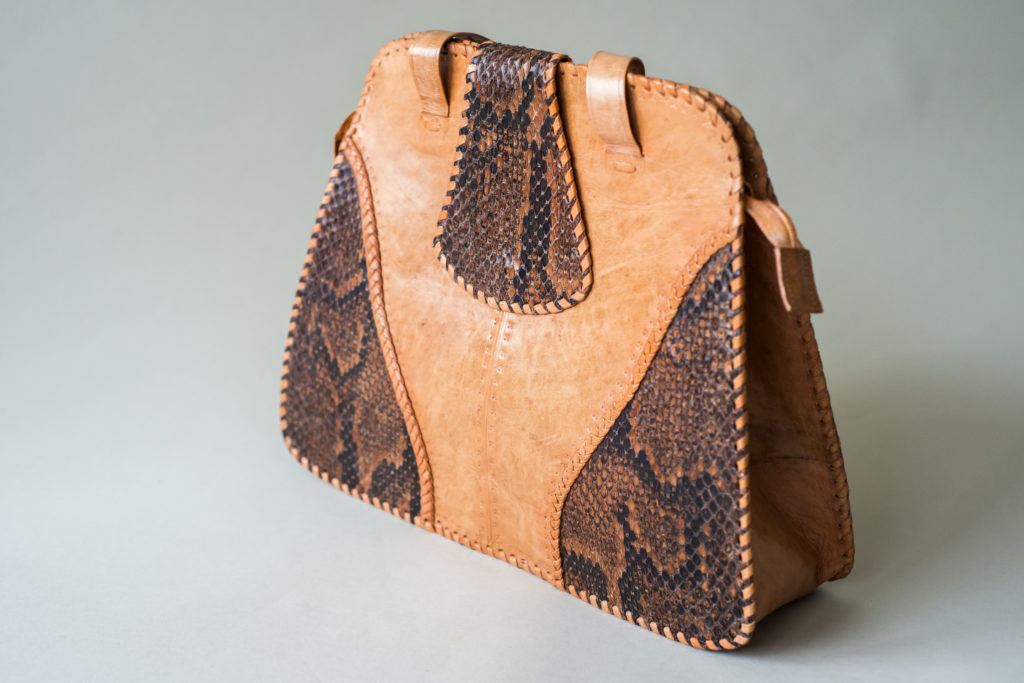To date, Robin Sirleaf continues to engage customers in the US and internationally through fairs, pop up shops, and digital platforms like Adiree.com our contemporary cross cultural fashion and lifestyle eCommerce platform.
On a Friday evening, after a long day of legal work at the office, you can find 26-year-old LLM graduate Robin Sirleaf and founder of Sarep Rose, is shuffling through her list of self-imposed homework assignments. With huge spectacles, smeared red lips— compliments of numerous sips of coffee – and an afro softly twisted into a manageable bun with the help of the Shea Moisture leave-in conditioner, she ponders how to make a positive social and economic impact on her home country, Liberia. And in true entrepreneurial spirit, how to make a difference.
She mumbles softly to herself, purse…purse. That’s it! Sirleaf had concluded that her mission to bring Liberia’s craftsmanship to the global stage would be carried on the arms of people. From sourcing leather across Mali and Guinea, both rich in traditional cattle-herding communities, and collaborating with bag makers and artisans, Sirleaf began manufacturing bags.
 Her brand, Sareptha Rose , is where authentic craftsmanship and attention-grabbing contemporary style meet. Made in Africa, these vintage-style leather handbags and wallets are carefully stitched, dyed, and hand-pressed. Each product is a unique piece, and each of these bags hails from artisans belonging to one of the world’s oldest tribes, famous for its rich cattle-herding traditions and leather-working skills.
Her brand, Sareptha Rose , is where authentic craftsmanship and attention-grabbing contemporary style meet. Made in Africa, these vintage-style leather handbags and wallets are carefully stitched, dyed, and hand-pressed. Each product is a unique piece, and each of these bags hails from artisans belonging to one of the world’s oldest tribes, famous for its rich cattle-herding traditions and leather-working skills.
Sirleaf, after settling in at her Soho pop-up shop in New York, wearing a loose fitting tunic, nods at her iPad as she shows videos of artisans proudly engrossed in the development, research, and design stages of each product. “ You know this isn’t charity, it’s just fair business,” Sirleaf states. “Our bag designers are business people, self-taught in their talent and their desire to provide for their families. By doing business with us, you enable them to not just survive, but to live with dignity.”
With that, Sirleaf continues to re-arrange items on her table positioning bags at the right angles, basking in the perfect lighting. At that moment clients begin to walk by, she smiles, welcoming them with hand gestures.
You know this isn’t charity, it’s just fair business. – Robin Sirleaf
Sirleaf has reason to be passionate and optimistic about her budding leather goods company— the leather goods manufacturing industry in the US is going through a transformation of sorts. Although attempts to reshore manufacturing in the USA are being made with improving results, the industry is still being crippled by an uncertain economic atmosphere and complex exchange rate dynamics. Competition from inexpensive Chinese imports and high-quality European brands have also kept the industry from bouncing back from its doldrums. Much of the industry’s operations have moved to more competitively-priced countries. Countries like Liberia, have the opportunity to leverage this trend. Known as the “Boss Lady”—a common vernacular nickname referencing a woman’s passion and entrepreneurial spirit — Sirleaf represents a shining light for the future of Made in Africa brands.
Other signs of international interest in Africa’s propensity for manufacturing and producing leather goods also bodes well for Sirleaf. According to the Daily Mail, the UK has funded northern Nigerian tanneries who supply leather goods to fashion giants like Ralph Lauren and Louis Vuitton. The article further states that the funding was used to improve ethical standards and processes in local leather production.
Sareptha Rose may be Africa’s budding leather goods brand, but is in ‘good’ company. In Nigeria for example, Zashadu is a leading British/Nigerian sustainable luxury brand that specializes in hand-crafted leather pieces; each is created at a workplace in Lagos, Nigeria, using traditional techniques passed down through generations by communities of local artisans. The founder, Nigerian entrepreneur Zainab Ashadu, sells her luxury handbags locally and internationally on the company website. Product prices range from £320 (US$524) for a box clutch bag while high-price point items (for example The Justice Python collection) sell at £1,100 ($1,800) a piece.
Should African countries like Liberia and its neighbors attract national government attention in the form of incentives and policies (for manufacturing and producing finished leather goods), Ashadu and Sirleaf’s preparations and the timely launch of their budding companies could meet the right opportunity.


